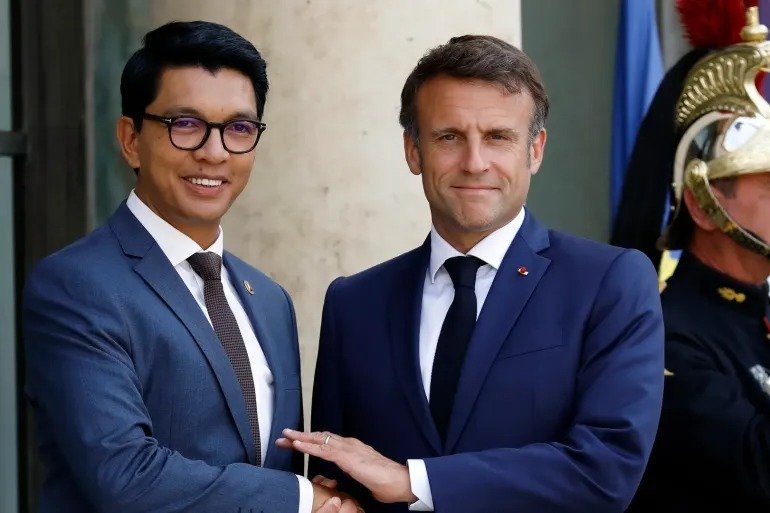Madagascar’s new government has revoked the citizenship of former president Andry Rajoelina, who was ousted from power last week. The decision was signed by newly appointed Prime Minister Herintsalama Rajaonarivelo, citing national laws that require the withdrawal of Malagasy citizenship from individuals who have acquired foreign nationality.
Rajoelina, 51, obtained French citizenship a decade ago — a fact that previously sparked calls for his disqualification from the presidential race. However, he defied those calls and eventually won the election.
He fled the Indian Ocean island nation after weeks of protests over persistent power and water outages, which culminated in a military intervention led by Colonel Michael Randrianirina. Rajoelina stated that he went into hiding for his own safety, and his current whereabouts remain unknown.
When his French nationality was revealed months before Madagascar’s last presidential election, Rajoelina claimed he had acquired it secretly only to make life easier for his children studying in France.
In recent weeks, demonstrations initially organized by the youth-led “Generation Z” movement — inspired by similar activism in other parts of the world — gained momentum. These youth protests took a decisive turn when Colonel Randrianirina sided with the demonstrators, seized power, and declared himself president.
Meanwhile, the Financial Crimes Commission in Mauritius announced the arrest of Rajoelina’s aide, Maminiana Ravatomanaga, on charges related to money laundering.
Ravatomanaga had previously sought refuge in Mauritius as Rajoelina’s influence waned and domestic pressure mounted.
These developments further complicate Madagascar’s political landscape, where internal crises are now intersecting with regional tensions, as the Malagasy public watches closely to see how the transitional phase and the country’s political future will unfold.

